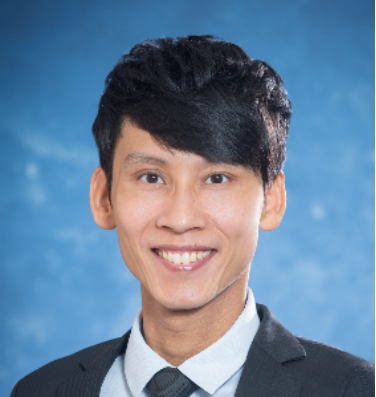
Christopher H. T. Lee is an expert in electric motors and drives, renewable energies, and electromechanical propulsion systems. In these fields, he has published 2 books, 4 book chapters, and over 250 peer-reviewed papers in leading journals and international conferences. He has served as a PI for research grants with amount exceeding USD 12 million. He has been collaborating with many giant incorporations, including Panasonic (Japan), Rolls-Royce (United Kingdom), Magna International Inc. (United States), Schaeffler Group (German) and Jingsu Xinri E-Vehicle Co. Ltd (China).
Dr. Lee received his B.Eng. in Electrical Engineering with 1st Class Honours at The University of Hong Kong (HKU), Hong Kong in 2009. He then served as an Instructor in a local school for two years. He obtained his Ph.D. in his alma mater with the Best Thesis Award in 2016. Subsequently, he has been awarded a Croucher Fellowship to further his research interests as a Postdoc Fellow at Massachusetts Institute of Technology (MIT), United States. He currently serves as an Associate Professor at Nanyang Technological University, Singapore. He is selected as a prestigious Singapore NRF Fellow in 2020.
Dr. Lee holds visiting professorship from many top universities, including MIT and HKU. He is an IEEE Senior Member, a chartered engineer and an Associate Editor of IEEE Transactions on Industrial Electronics, IEEE Transactions on Energy Conversion, IEEE Access and IET Renewable Power Generation. He is the Chair of IEEE Vehicular Technology Society Singapore Chapter in 2023 – 2025. Dr. Lee was a recipient of the 10th Nagamori Award in 2024, IAS Myron Zucker Student-Faculty Grant in 2023, JSPS Fellowship in 2023, MDPI Energies Young Investigator Award in 2022, NRF Fellowship in 2020, Nanyang Assistant Professorship in 2019, Li Ka Shing Prize (the best Ph.D. thesis prize) in 2017 and Croucher Foundation Fellowship in 2016, and 5 best paper awards, including First Place Best Paper Award in IEEE Transactions on Energy Conversion in 2022.
With changing consumer habits, government regulations and sustainability requirements, research on electromobility applications, for example electric vehicles, electric ship and electric aircraft, has drawn much attention. In particular, it is anticipated that by 2040, annual sale of electric and hybrid vehicles is projected to outsell gasoline and diesel vehicles, with estimated sale of 48 million units per year. As the key component of the electric and hybrid vehicle systems, development of electric motor drive has become a hot research topic. In the conventional gear-drive system in electric vehicles, the propulsion motor is connected to the wheels through a series of mechanical transmission components. The mechanical transmission inevitably results in reduced efficiency, boosted weight, and increased maintenance cost. An alternative solution is to employ direct-drive system, or also known as gearless system to eliminate the mechanical transmission components. In such case, more space is spared for battery and passenger accommodation, while better control flexibility can be realized with independent wheel control.
In the past century, the energy storage technique has been developed rapidly, and high-power density batteries have been employed for automobile applications. Various direct-drive electric motor drives are also investigated, which provides higher power density with reduced unsprung weight. Therefore, the direct-drive motor drive systems have promising potentials for electromobility application. With reference to typical gear-drive systems, this speech aims to introduce the latest development of direct-drive electric motor drive, particularly on the focus of the new design concepts and practice with a brief but comprehensive coverage of various topics.